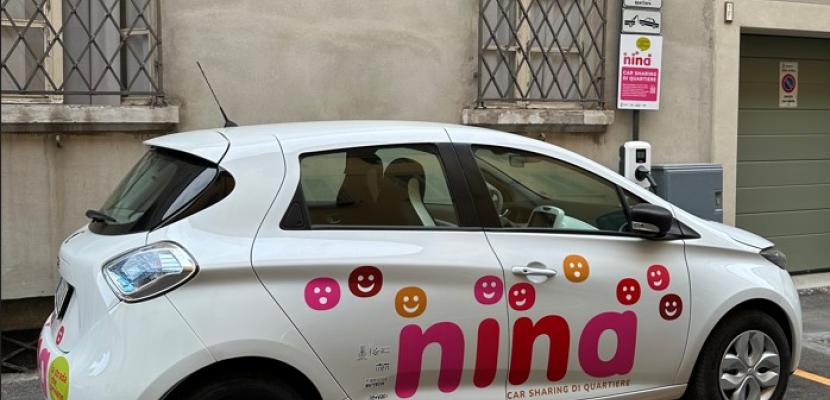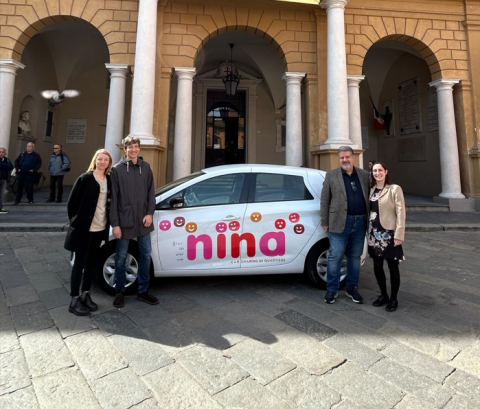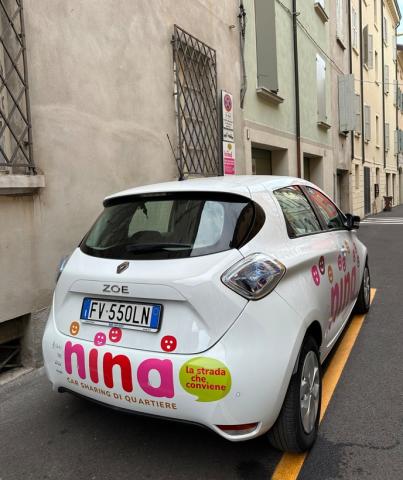
NINA Neighbourhood car sharing

About this good practice
Associative car sharing involves the presence of an association and actively engages member users, who contribute to the management and organisation. This practice fits perfectly in an overall vision of the city of proximity, as it combines the promotion of sustainable mobility, easier access to services, and the strengthening of social relations within neighbourhoods.
Through a co-design process directly involving citizens, the rules for using the shared car were established. Citizens were able to define personalised rules for each of the involved neighbourhoods, including the tariff structure. The relevant associations and their roles were identified, not only acting as a bridge between different actors in the experiment but also supporting the social, environmental, and community dimensions. The actors in the neighbourhood associative car sharing model being tested in Reggio Emilia are:
- Citizens, divided into pilot groups, who are both the designers of the car management model and the users
- Associations (Cultural Association Cinqueminuti, Community Center Rosta Nuova, APS Sports Association), promoting community and sharing values and serve as the link between citizens and other stakeholders
- The Municipality, supporting the neighbourhood car sharing experiment and providing financial backing for the associations.
- Private partners, who provide the tools to concretely establish the neighbourhood car sharing service (electric cars, recharging columns..)
Expert opinion
Resources needed
58,000 € for feasibility study, participatory planning and one-year experimentation in two pilot neighborhoods (including provision of 2 electric cars and app for booking and using the cars).
Evidence of success
The neighbourhood car sharing experiment began on 15/07/2024 in 2 neighbourhoods: historic centre and a peripheral neighbourhood in the south of the city. To date, there are 10 registered users, and the service satisfaction is high. The Administration has received many requests to expand the service. The approach proved successful in offering an innovative approach to service provision which also promotes a responsible use of shared resources and the active participation of the community.
Potential for learning or transfer
The neighbourhood car sharing model is exportable since it is based on a governance model that engages stakeholders who are active in all territories.
Moreover, this model is adaptable to different contexts: urban and peri-urban contexts where public transportation is limited and private cars are necessary to reach essential services, but also rural and low population density areas, for an efficient vehicle access.
Additionally, the customization of the shared car usage regulations allows the model to be adapted to the needs of citizens in cities and neighbourhoods of different dimensions and service provision.
Further information
Images


